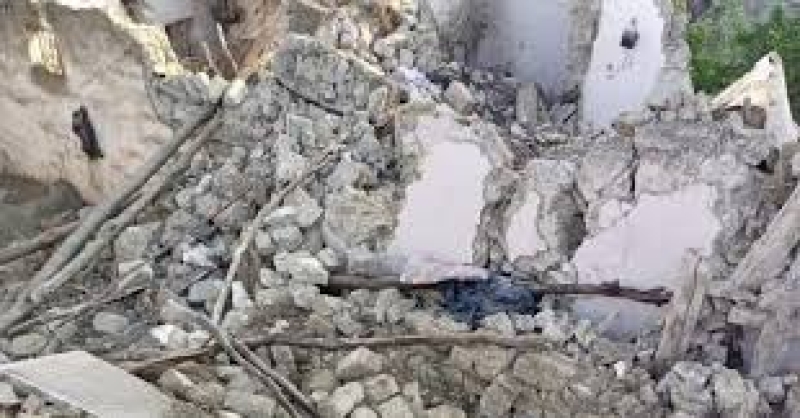- Nepal PM resigns as 19 killed in social media ban, graft protests |
- Western Support for Israel Faces Growing Strains |
- Nepal lifts social media ban after 19 killed in protests |
- DU VC vows maximum transparency in Tuesday's DUCSU elections |
- UN Pledges Support After Deadly Nepal Protests |
610+ killed as powerful quake devastates eastern Afghanistan

A powerful earthquake in eastern Afghanistan has killed more than 610 people and flattened numerous villages, a Taliban government spokesman said Monday.
The magnitude 6.0 quake struck late Sunday in several towns in Kunar province, close to Jalalabad in neighboring Nangarhar, causing widespread destruction.
According to the U.S. Geological Survey, the tremor hit at 11:47 p.m. and was centered about 27 kilometers (17 miles) east-northeast of Jalalabad, at a depth of just 8 kilometers (5 miles). Shallow quakes generally inflict greater damage.
Video from Nangarhar showed residents desperately digging through debris with their bare hands in search of relatives, while the injured were pulled from collapsed structures and airlifted to safety. In Kunar, villagers spoke to reporters outside their destroyed homes.
Interior Ministry spokesman Abdul Matin Qani told the Associated Press the disaster had killed 610 people and injured 1,300 in Kunar, with many houses reduced to rubble. He added that a dozen people died and hundreds more were wounded in Nangarhar.
Rescue operations are ongoing, with medical teams from Kunar, Nangarhar and Kabul deployed to assist, said Sharafat Zaman, a spokesman for the Ministry of Public Health. He noted that several areas had yet to provide casualty updates and that “the numbers were expected to change.”
Taliban chief spokesman Zabihullah Mujahid said “all available resources will be utilized to save lives.”
Jalalabad, a bustling trade hub due to its location near Pakistan and a major border crossing, has an official population of around 300,000, though the metropolitan area is much larger. The city is made up mostly of low-rise brick and concrete buildings, with poorer outskirts featuring mud and wood houses vulnerable to collapse. Agriculture is central to the region, producing citrus fruits and rice, with the Kabul River running through the city.
Afghanistan previously experienced a devastating quake on Oct. 7, 2023, when a magnitude 6.3 earthquake and aftershocks killed thousands. The Taliban government reported at least 4,000 deaths, while the U.N. put the toll closer to 1,500. It remains the country’s deadliest recent natural disaster, reports UNB.

